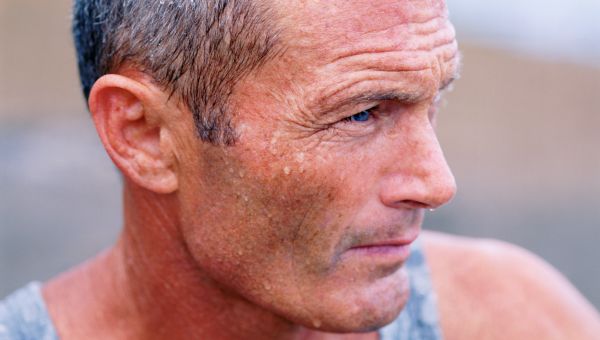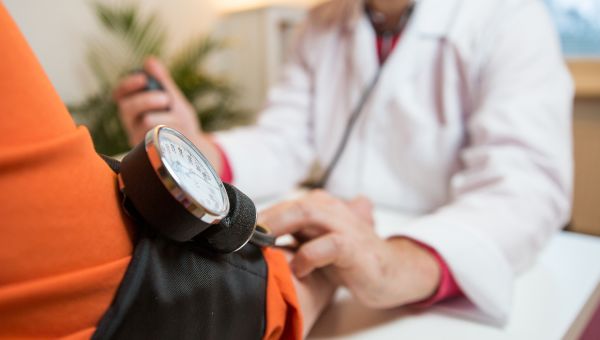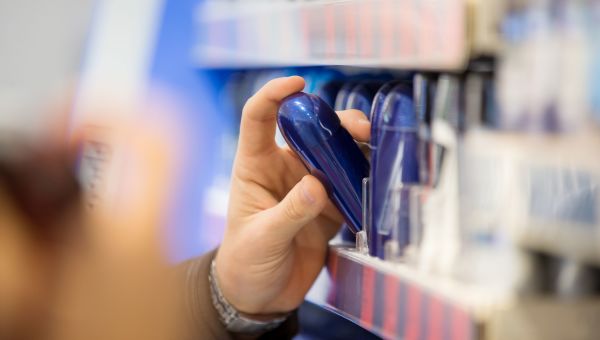5 down and dirty facts about sweat
Perspiration is critical to keeping cool. Learn when, why, and how you sweat, plus much more.
Updated on September 18, 2023

Though it can be bothersome, sweating is an essential biological function. It helps regulate body temperature, keeping us cool and preventing us from overheating.
Just about everyone sweats. It often happens when you exercise, feel hot, run a fever, or are anxious about something. Sweat itself is mostly made of water, but also contains small amounts of chemicals like salt, sugar, ammonia, and urea. It’s produced by glands found in the middle layer of skin, called the dermis.
But there’s much more to perspiration than that. Find out why you sweat more in certain places, what food and health conditions can make you perspire, what to do about excessive sweat, and much more.

Sweat happens in the strangest places
Ever notice you sweat more than usual in certain spots, like the palms of your hands? Don’t worry; it’s perfectly fine. There are three types of sweat glands, located all over the body, and some areas have more glands than others. The most common type, called eccrine sweat glands, number between 2 and 4 million, and are highly concentrated in the hands, feet, and head.
“Hands, feet, and armpits all have a lot of sweat glands, so we sweat more in those areas,” says Sorahi Toloyan-Rahimi, MD, a family medicine practitioner at MountainView Hospital in Las Vegas. Other sweat hot spots include the forehead, scalp, and groin.

Food can make you sweat
You may have noticed you tend to perspire after eating particularly spicy or hot foods. “They irritate the nerves that go to the sweat glands, activate them, and that produces more sweating,” explains Dr. Toloyan-Rahimi.
There’s also a condition called Frey syndrome, or gustatory hyperhidrosis, that causes you to sweat when you eat. It’s sometimes caused by a complication of diabetes called diabetic neuropathy, or by nerve damage around the salivary glands. If you have Frey syndrome, even eating ice cream can cause beads of sweat to drip down your neck.

Your health or medications may be the reason
Certain medical conditions can cause excessive sweating, including:
- Thyroid disease
- Diabetes
- Lymphoma
- Neurological disorders such as Parkinson’s and Alzheimer’s disease
- Acromegaly, which occurs when your body produces too much growth hormone
- Pheochromocytoma, a tumor that sometimes develops on the adrenal glands on top of the kidneys
You may also sweat more when you’re pregnant, or during perimenopause and menopause. Certain types of medications can make you sweat more than usual, too, including some pain medicines, antidepressants, and thyroid hormones.
If you’re sweating a lot or have developed other new, unusual, or severe symptoms, it’s wise to see a healthcare provider (HCP). Depending on your symptoms, an HCP can determine if it’s related to a medical problem and discuss your treatment options.

Antiperspirants are safe
Antiperspirants are products that help prevent or reduce sweating. They come in many forms, such as sprays, roll-on sticks, and powders. The safety of antiperspirants has been called into question in recent years, as some have expressed concern that a certain ingredient, aluminum chloride, may cause dementia or Alzheimer’s. But Toloyan-Rahimi says you don’t need to be concerned. “Antiperspirants don’t have much aluminum chloride. Since the systemic absorption is not high, we are okay,” she explains.
But she does caution against using antiperspirants if you’ve got a cut. “If you have any wound in the armpit, you shouldn’t use any antiperspirants,” she says. It can irritate the cut or abrasion and delay the healing process. Antiperspirant is also not recommended for people with especially severe kidney problems---specifically, those with Stage 4 or 5 chronic kidney disease (CKD).

Excessive sweating is treatable
Unlike antiperspirants, deodorants don’t block sweating. Instead, they reduce or cover up odors. An antiperspirant deodorant does both—limits sweating and the resulting odor. Most people can keep their sweat in check by washing with soap every day and using antiperspirant deodorant.
If you sweat more than you think is normal or if it becomes a problem, speak with your HCP. Depending on what’s causing the excessive sweat, there are many treatments that may help, including prescription-strength antiperspirants, Botox, mild electrical current therapies, anticholinergic medicines, and even surgery to remove the sweat glands. In addition, says Toloyan-Rahimi, Nd:YAG lasers, usually used to remove hair, can be used to destroy sweat glands.

Baker LB. Physiology of sweat gland function: The roles of sweating and sweat composition in human health. Temperature (Austin). 2019 Jul 17;6(3):211-259.
Nemours Kids Health. What’s Sweat? Accessed September 15, 2023.
Better Health Channel (Aus). Sweat. Reviewed July 19, 2020.
StatPearls. Anatomy, Skin, Sudoriferous Gland. Page last updated April 24, 2023.
SweatHelp.org. Gustatory Sweating (Frey’s Syndrome). Accessed on June 24, 2023.
Rare Diseases. Frey Syndrome. December 3, 2020.
Watkins PJ. Facial sweating after food: a new sign of diabetic autonomic neuropathy. Br Med J. 1973 Mar 10;1(5853):583-7.
Klarskov CK, von Rohden E, Thorsteinsson B, et al. Gustatory sweating in people with type 1 and type 2 diabetes mellitus: Prevalence and risk factors. Endocrinol Diabetes Metab. 2021 Oct;4(4):e00290.
Mayo Clinic. Excessive Sweating. August 24, 2022.
Samuels L, Nakstad B, Roos N, et al. Physiological mechanisms of the impact of heat during pregnancy and the clinical implications: review of the evidence from an expert group meeting. Int J Biometeorol. 2022 Aug;66(8):1505-1513.
Cedars Sinai. Excessive Sweating (Hyperhidrosis). Accessed on June 23, 2023.
Cleveland Clinic. Night Sweats. Page last reviewed September 6, 2022.
American Cancer Society. Antiperspirants and breast cancer risk. Page last revised October 19, 2022.
Penn Medicine. Is Deodorant Harmful for Your Health? June 6, 2019.
National Kidney Foundation. Antiperspirants. Accessed on June 26, 2023.
American Academy of Dermatology Association. Hyperhidrosis: Diagnosis and Treatment. Accessed on June 23, 2023.
Ghossein N, Kang M, Lakhkar AD. Anticholinergic Medications. StatPearls. Page last updated May 8, 2023.
